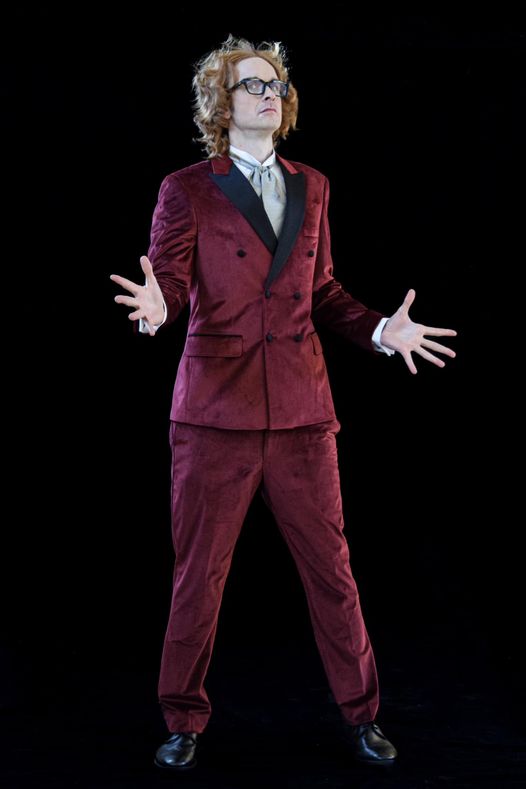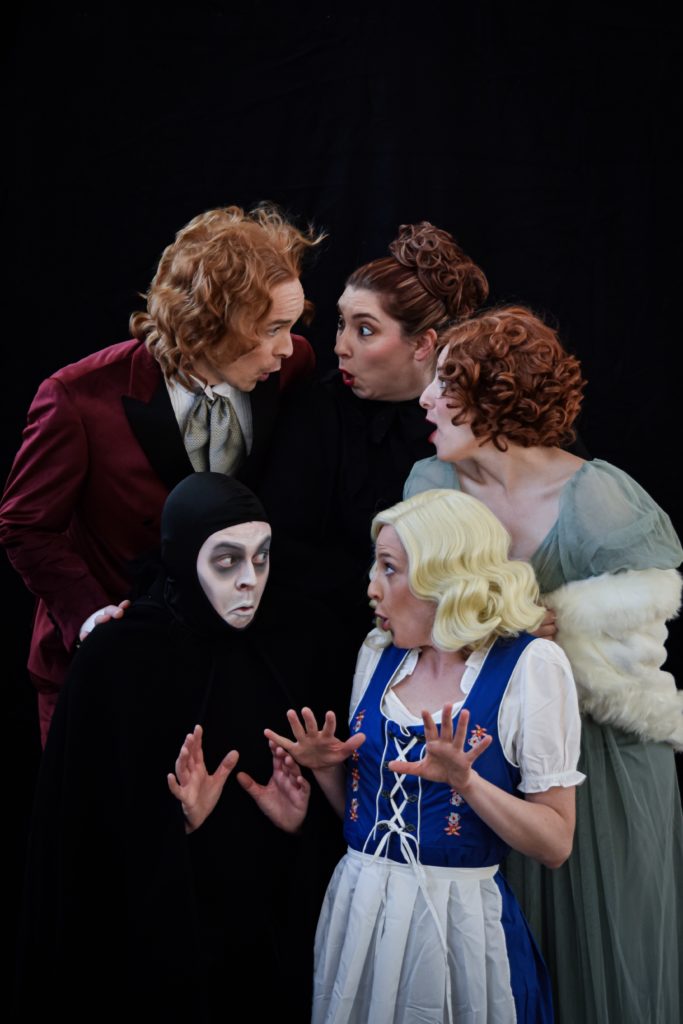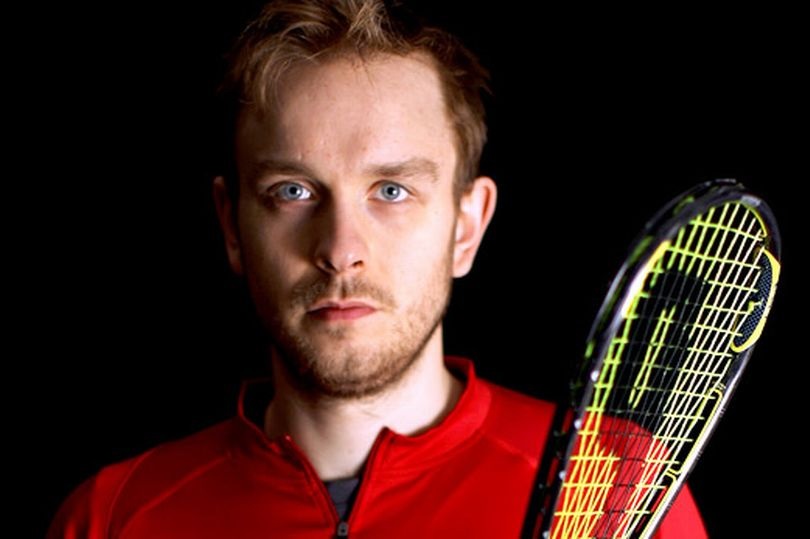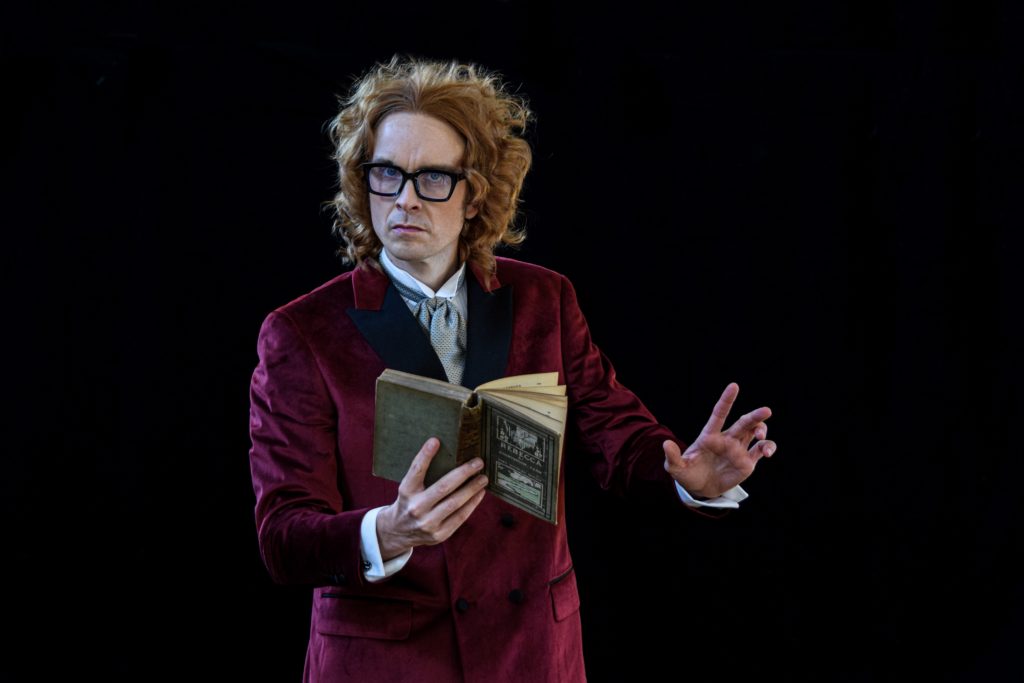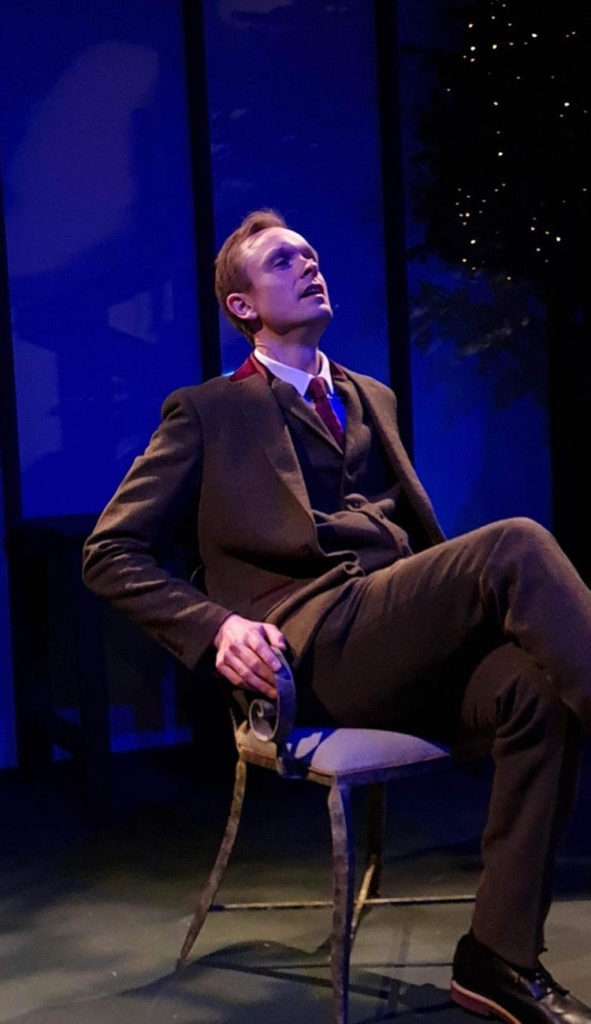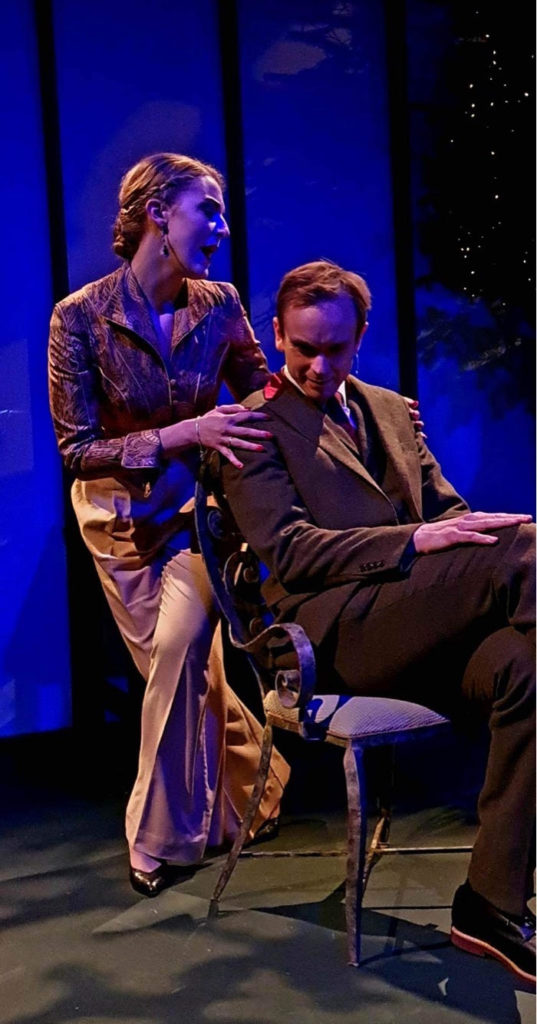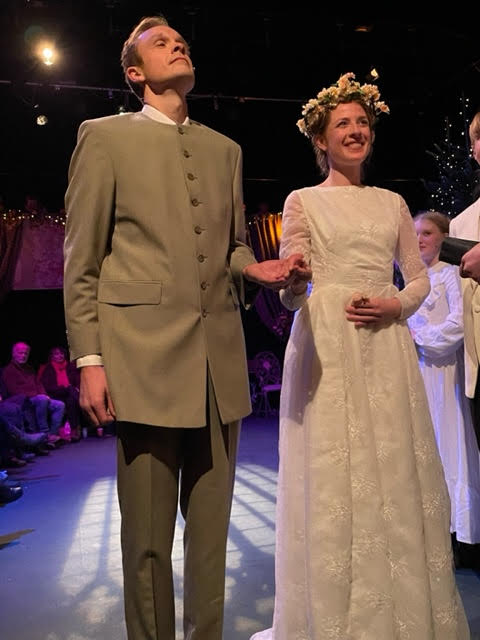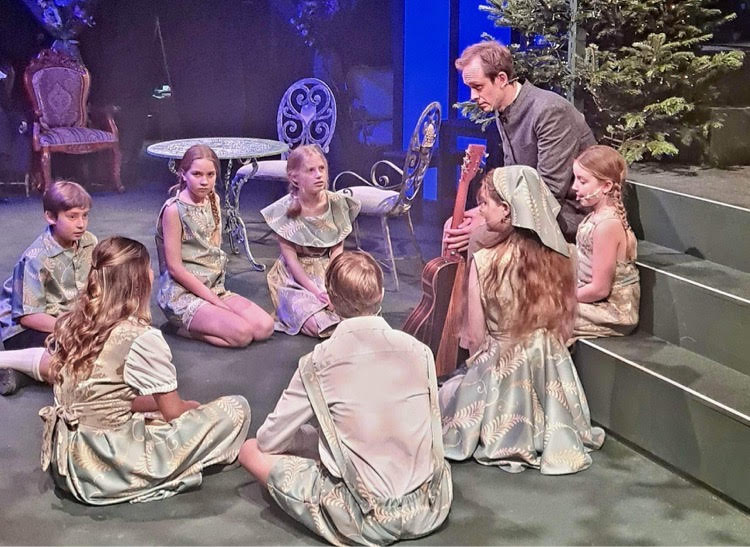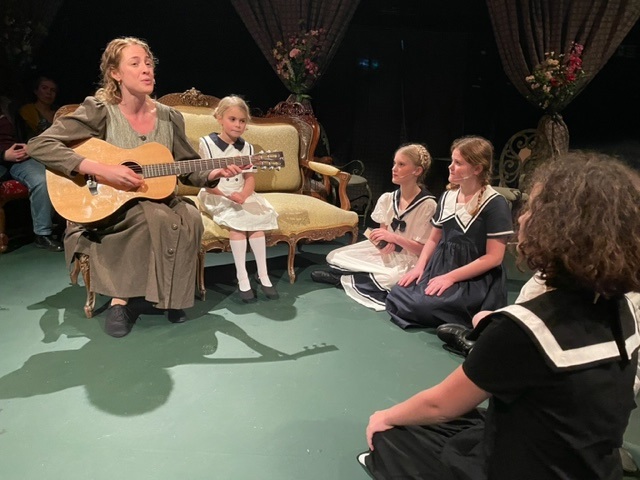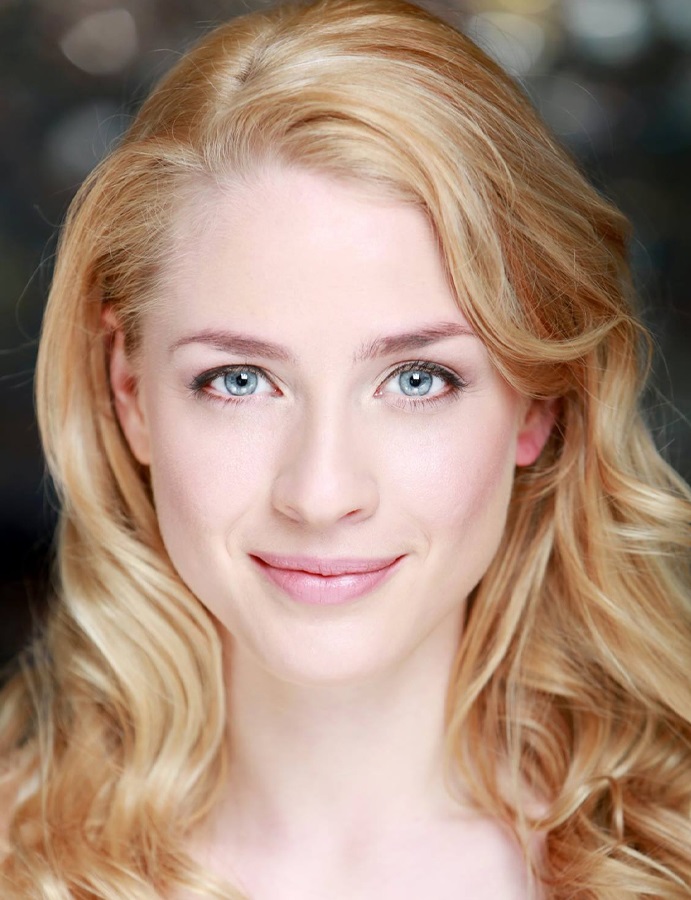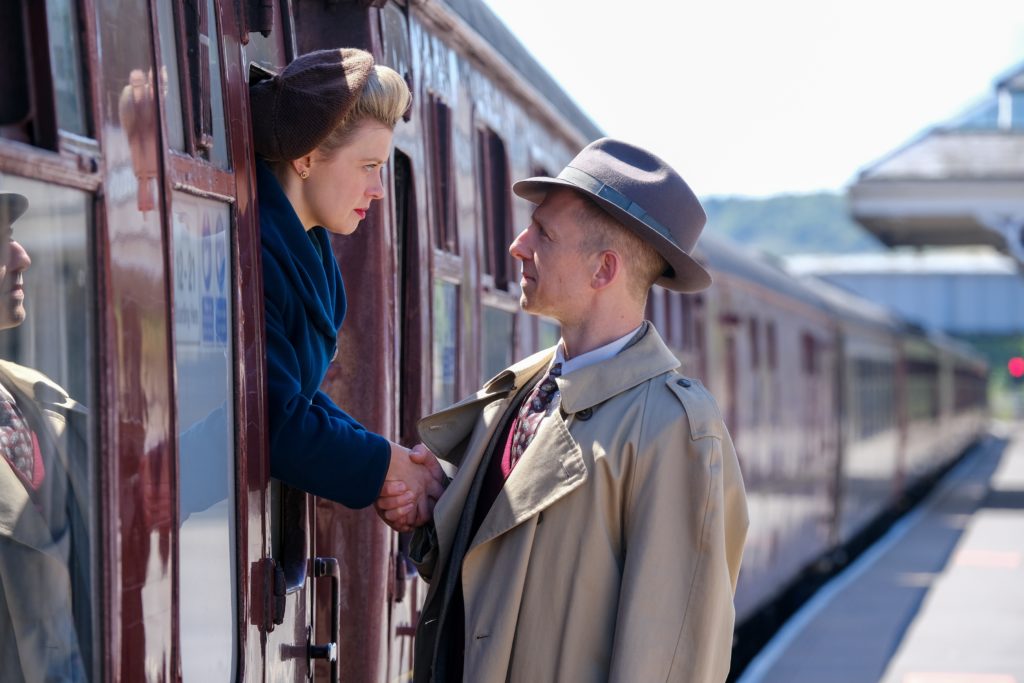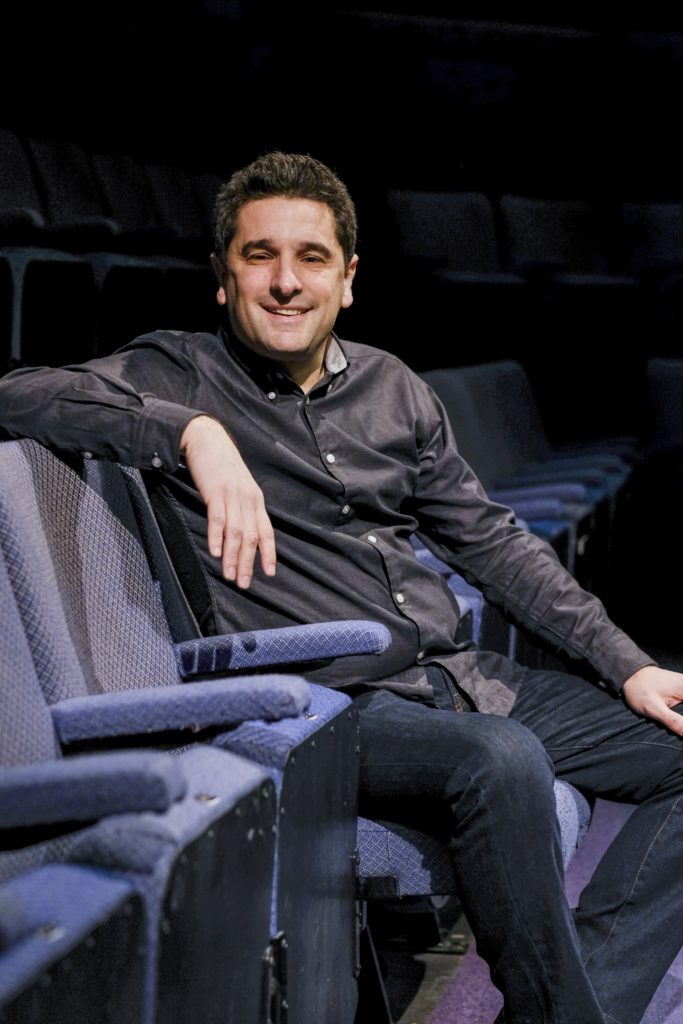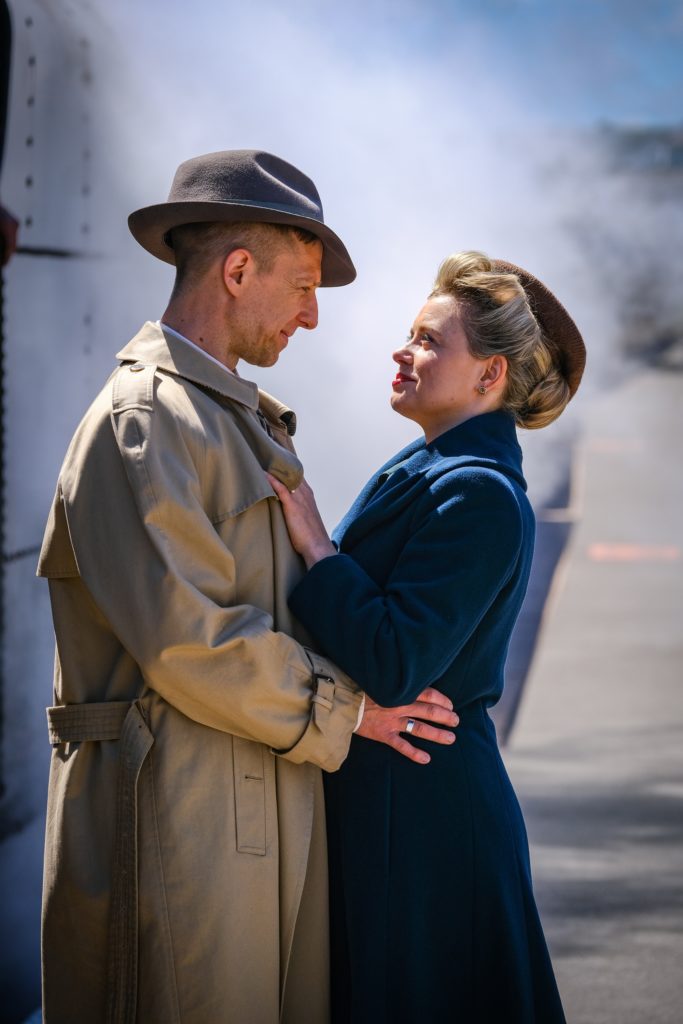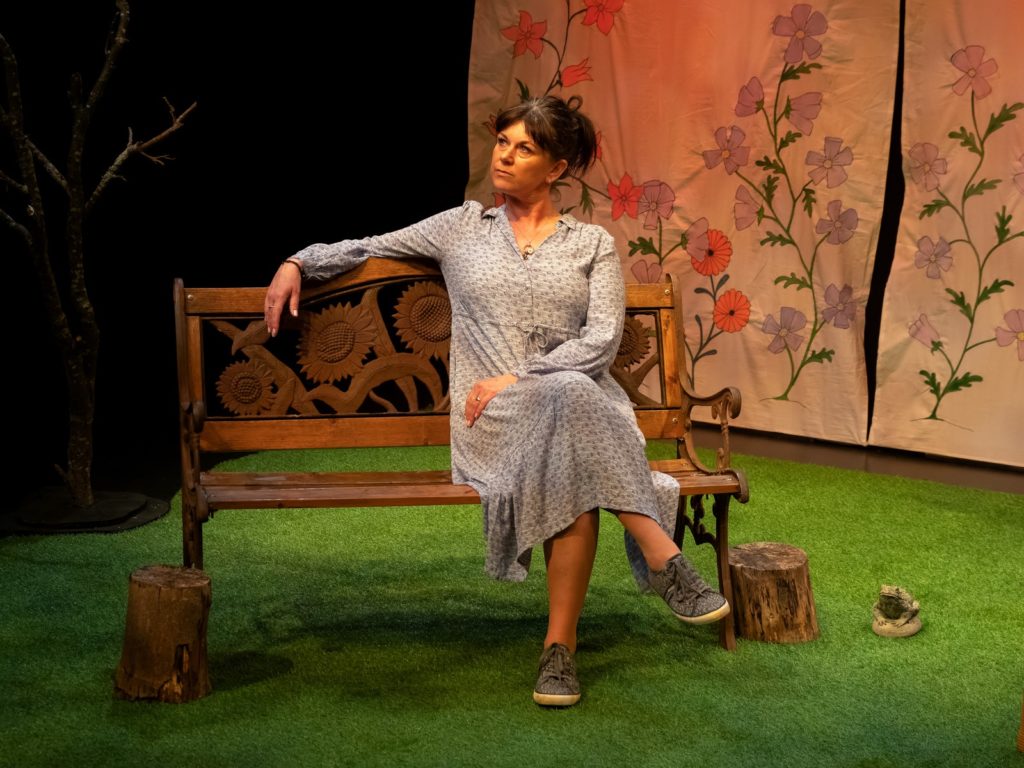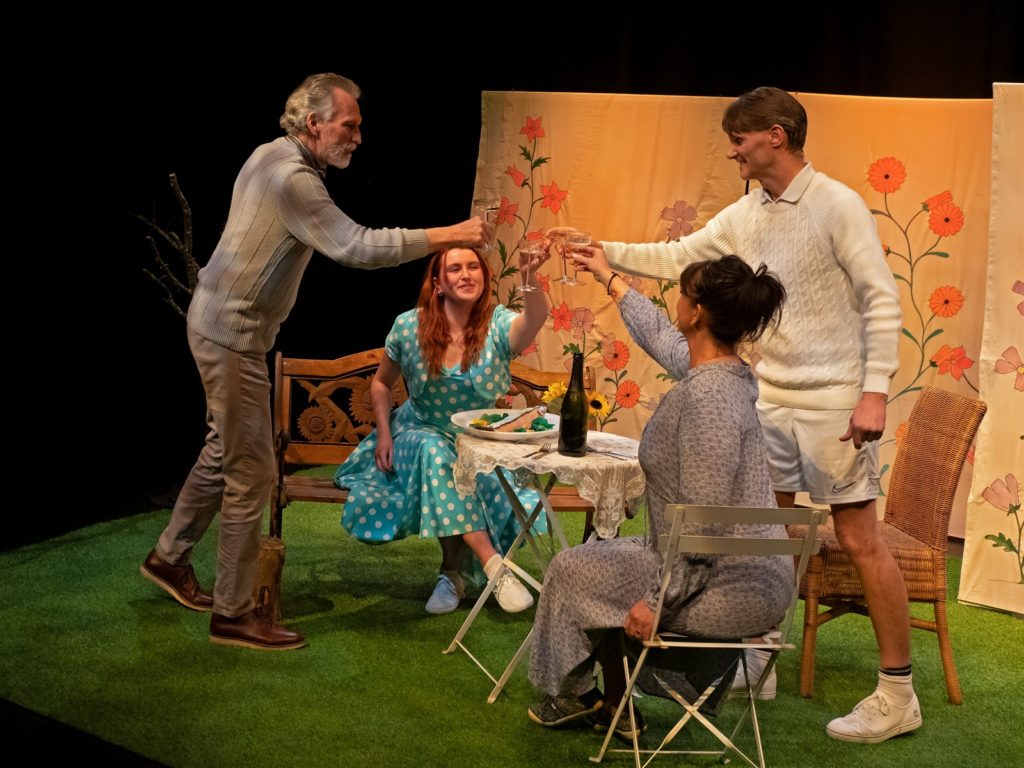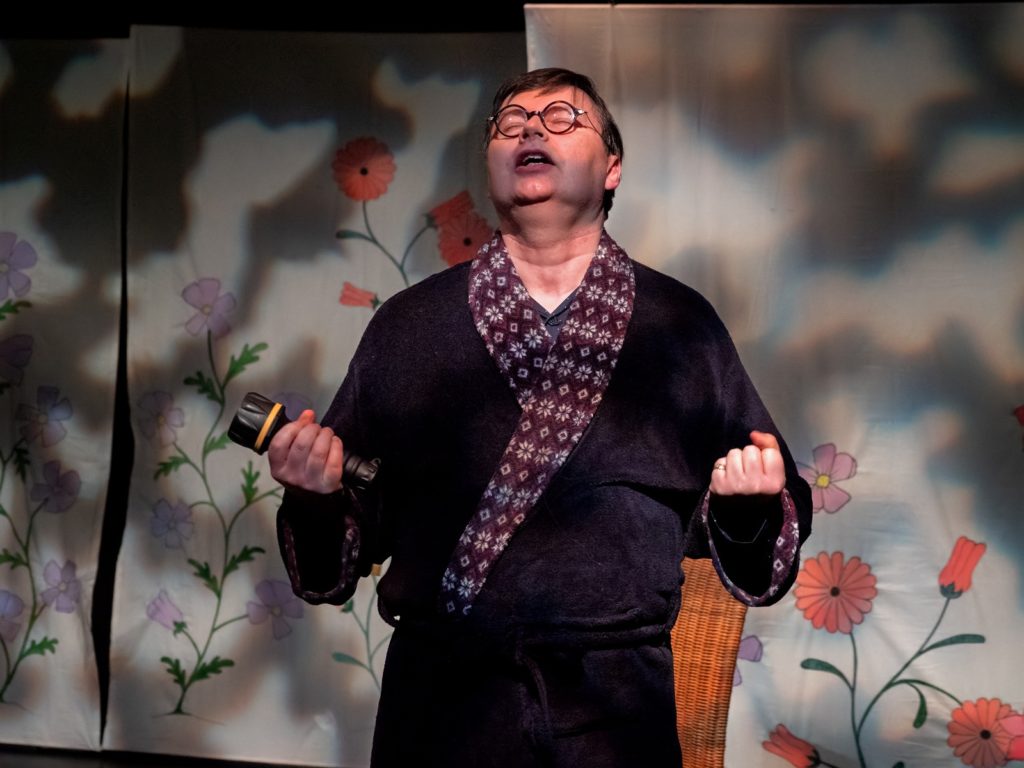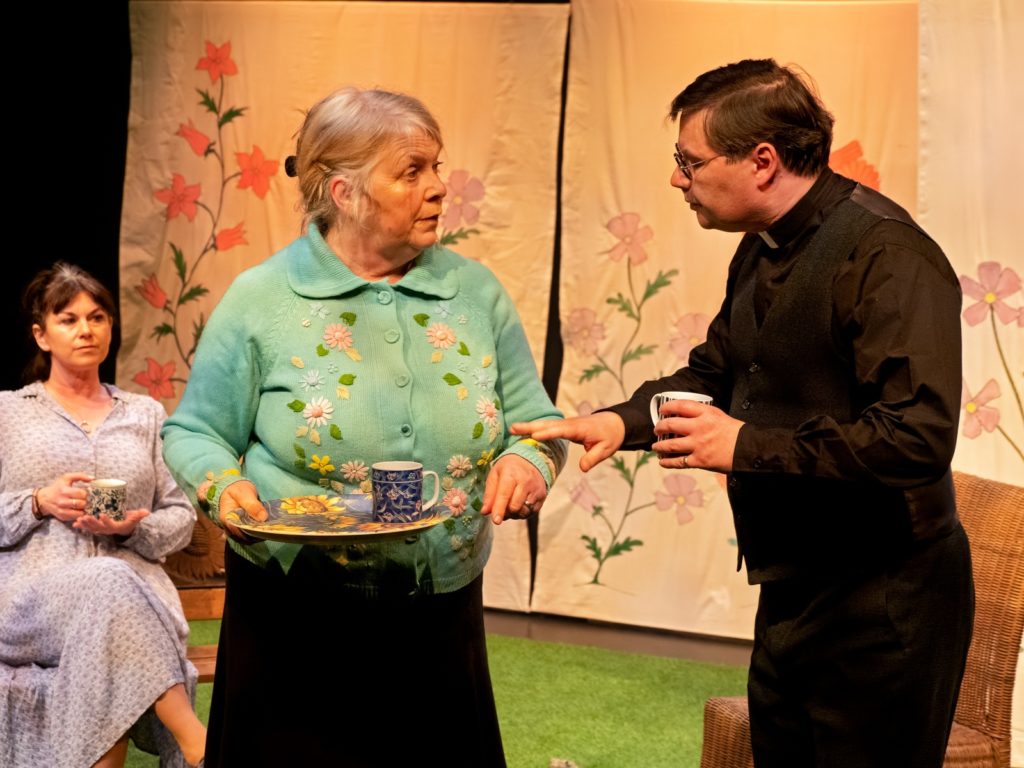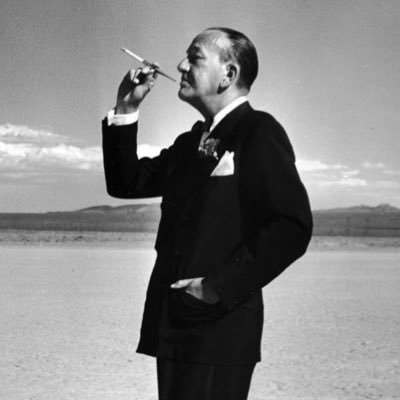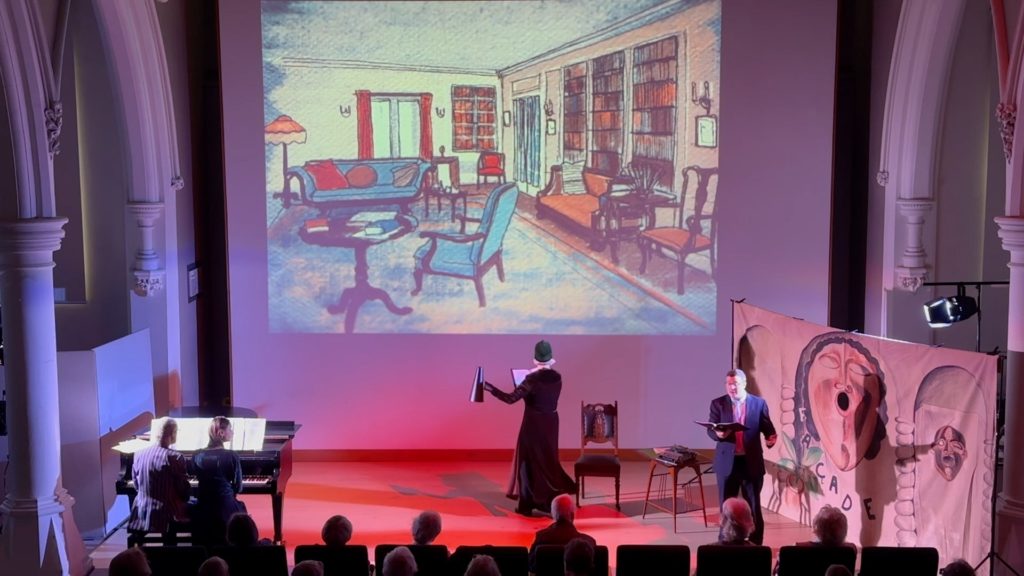
PHOTOGRAPHY, 3D imagery and video complement live performance in Art Sung’s exploration of Edith Sitwell’s iconic work Façade in Saturday’s concluding concert of York Late Music’s 2024 programme.
Edith Sitwell, Behind Her Façade is a semi-dramatised song recital that looks at the unusual and eccentric life of the flamboyant 20th century poet.
At 7.30pm, Art Sung tell Dame Edith Sitwell’s story in her own words, both spoken and sung, beginning with her troubled childhood at Renishaw Hall in Derbyshire, where she fell in love with a peacock, leading to a life of celebrity and notoriety in London, Paris and the United States of America.
It encompasses her encounters with various celebrities, most notably Noël Coward, with whom she was on non-speaking terms for 30 years after he parodied her in a West End revue, and Marilyn Monroe, with whom she got on famously, much to everyone’s surprise.
Edith also became a favourite subject for painters such as Wyndham Lewis, Roger Fry, and Russian painter Pavel Tchelitchew. The aesthetics of the art world from this period are the inspiration for the bespoke visual material that accompanies Saturday’s recital.
Woven through the narrative of the recital will be the story of Façade, the extraordinary musical entertainment that Sitwell created together with the then unknown composer William Walton.
His jazz-inspired music accompanied her poems that she recited through a megaphone from behind a curtain backdrop. The Sitwells saw this as an abstract method of providing poetry to an audience, without drawing attention to themselves. Ironically it had the opposite effect of turning them into celebrities.
“Saturday will be a multi-media performance with dance, animation and the interweaving of new music and poetry with excepts from Walton and Edith’s Façade and music by Britten, Bernstein and Satie, among others,” says Late Music co-programmer, composer and lecturer Hayley Jenkins, from the York St John University School of Arts.
“Elizabeth Mucha, the director, has cleverly interwoven these elements to illustrate Edith’s story via multiple characters performed by tenor Michael Gibson and contra-alto Lucy Stevens as Edith.
“This will be an evening with a difference for Late Music: we haven’t had a production on this scale for a very long time,so we are very excited to host it after such excellent reviews from Buckingham Festival, Barnes, New Malden and London Song Festival.”
Here Art Sung’s founder, Scottish-Polish pianist Elizabeth Mucha, discusses Edith Sitwell, Behind Her Façade
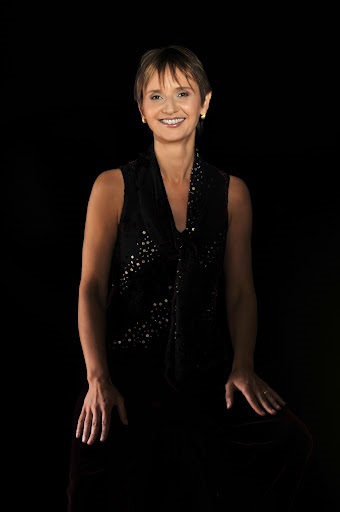
What songs from this iconic work will be included in the programme?
“There will be movements from Façade by William Walton and Edith Sitwell, arranged for piano duet by Walton’s great friend Constant Lambert. These will include Popular Song, Fox-Trot, Swiss Yodelling Song, Scotch Rhapsody and Valse.
“There will also be music for piano duet, played by myself and Nigel Foster: extracts from the ballet Parade by Erik Satie and Leonard Bernstein’s America from West Side Story.
“The programme also includes songs by William Walton, Benjamin Britten, Ned Rorem, Michael Head and Noël Coward, as well as songs specially commissioned for this programme by Dominique le Gendre and York Late Music’s very own Hayley Jenkins.”
What is Art Sung?
‘”We are an ensemble of singers, pianist, actor and visual artists that creates connections between music, art and story in a series of semi-dramatised song recitals. Our projects have focused to date on women whose artistic careers have not received the recognition they deserve.
“Their stories are told in their own words drawn from first-hand sources, such as diaries and letters, with songs and music which reflect, comment or elaborate on the narrative, together with the creatively projected artwork.”
What is the story behind the Art Sung – Edith Sitwell: Behind Her Façade project?
“In 2022, I formed a piano duo with Nigel Foster (director of the London Song Festival). We are the London Piano Duo and one of our programmes that year included several movements from Façade by Walton.
“As we both have a huge interest in adding context to programmes through narrative and visuals, we thought it would be a great idea to join forces to create an Art Sung to tell the background story of how Façade came into being. And so, Art Sung – Edith Sitwell: Behind Her Façade was born as we joined forces with the London Song Festival in 2023 to create it.
“This is Art Sung’s fourth production and celebrates the premiere of Edith Sitwell’s collaboration with composer William Walton in 1923 on the musical entertainment Façade, as well as exploring her colourful and dramatic life.”
Who is involved in the Art Sung project?
“Lucy Stevens is both a singer and actor, who is touring with her one-woman show about singer Kathleen Ferrier. Last year, she was nominated for an OffFest Award (Edinburgh Fringe 2023) for her one-woman show about singer/actress Gertrude Lawrence.
“Michael Gibson is a tenor whose many roles have included: Borsa (Rigoletto), Young Servant (Elektra), Normanno (Lucia di Lammermoor), Heinrich (Tannhäuser), Pong (Turandot), Gastone (LaTraviata) and Ruiz (Il Trovatore).
“Pianist Nigel Foster is director of the London Song Festival, a prestigious festival that showcases the song repertoire and provides a performance platform for young singers. He has broadcast on BBC Radio 3 and on television in several European countries.
“Roxani Eleni Garefalaki is a performance artist, director and movement instructor from Athens, based in London. She has directed the previous three Art Sung productions and is part of the visual team that creates the bespoke imagery.
“James Symonds is the videographer. Under the guise of Symian, he mixes digital filmmaking, sound production, programming and 3D design to produce large-format exhibition work, theatre staging and ‘live’ visual events for companies.”
And yourself, Elizabeth?
“I am a pianist, scriptwriter and producer. I have been fortunate enough to perform throughout Europe, the Americas and the Far East as a song accompanist, chamber musician and solo pianist. I have broadcast on the BBC and other classical music stations in Holland, Brazil, Canada and the Philippines.
“I also had the great pleasure of performing at Late Music in 2019 with baritone Robert Rice. I’m very much looking forward to performing again at Late Music.”
For more information and tickets and to download a free programme, go to: latemusic.org. Elizabeth Mucha and composer Hayley Jenkins will give a pre-concert talk at 6.45pm with a complimentary glass of mulled wine and a mince pie. Box office: https://latemusic.org/product/art-sung-concert-tickets-sat-7-dec-730pm/
Promo video: https://youtu.be/mzHA-HYstDg?si=b7bPEcTQdlPV9LKW
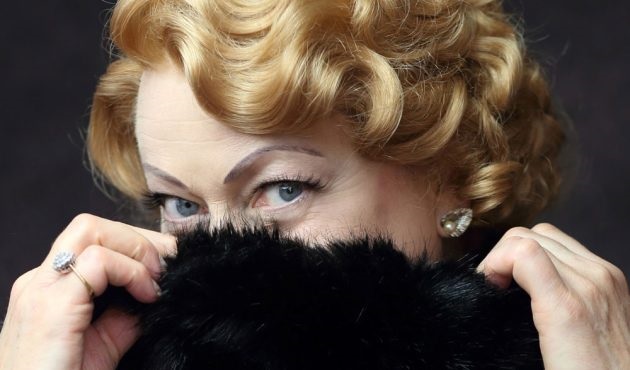
Saturday’s programme order
William Walton (1902-1983) and Edith Sitwell (1887-1964) – Popular Song (extract) from Façade
Hayley Jenkins (b.1990) and Olivia Diamond (b.1947) – Be A Strange Bird In A Tame Pond
William Walton and Edith Sitwell – Fox-Trot (extract) from Façade
William Walton and Edith Sitwell – Old Sir Faulk (extract) from Three Songs
Michael Head (1900-1976) and Edith Sitwell – The King Of China’s Daughter
William Walton and Edith Sitwell – En Famille (extract) from Façade
William Walton and Anon – Rhyme from A Song For The Lord Mayor’s Table
William Walton and Edith Sitwell – Daphne from Three Songs
Ned Rorem (1923-2022) and Edith Sitwell – You, The Young Rainbow
William Walton and Charles Morris (1745-1838) – The Contrast from A Song For The Lord Mayor’s Table
Erik Satie (1866-1925) – Extracts from the ballet Parade: Prélude du Rideau Rouge; Petite Fille Américaine; Rag-time du Paquebot
Benjamin Britten (1913-1976) and Anon – Rats Away (extract) from Our Hunting Fathers Op 8
William Walton and Edith Sitwell – Tango-Pasodoblé (extract) from Façade
Hayley Jenkins and Olivia Diamond – Edith Regina
William Walton and Edith Sitwell – Valse (extract) from Façade
Robert Marchant (1916-1995) and Edith Sitwell – When Sir Beelzebub
William Walton and Edith Sitwell – Popular Song (extract) from Façade
Interval
William Walton and Edith Sitwell – Popular Song (extract) from Façade
William Walton and Edith Sitwell – Valse from Façade
Noël Coward (1899-1973) – Poor Little Rich Girl from On With The Dance
Ned Rorem (1923-2022) and Edith Sitwell – The Youth With The Red-Gold Hair
William Walton and Edith Sitwell – Swiss Jodelling Song from Façade
Dominique le Gendre (b. 1960) and Olivia Diamond (b. 1947) – Pavel…You…
Benjamin Britten (1913-1976) and Edith Sitwell – Canticle III, Op 55 – Still Falls The Rain
Leonard Bernstein (1918-1990) – America from West Side Story
Lloyd Moore (b. 1966) and Edith Sitwell – Bells Of Grey Crystal
Joseph Horovitz (1926-2022) and William Shakespeare (1564-1616) – Lady Macbeth (extract)
William Walton and Edith Sitwell – Scotch Rhapsody from Façade
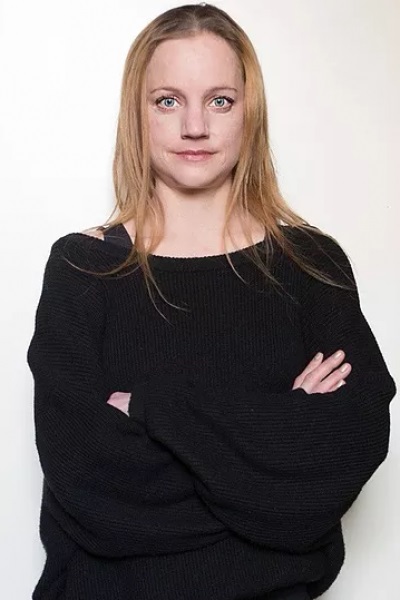
Edith Sitwell (1887-1964): the back story
BORN into an aristocratic family in 1887, she shot to fame in the 1920s through her unique and inventive collaboration with composer William Walton on her poems Façade. She was a favourite subject for portraitists of the 1920s, including John Singer Sargent, Roger Fry, Wyndham Lewis and Pavel Tchelitchew and was immortalised in black and white by society photographer Cecil Beaton.
Together with her brothers, Osbert and Sacheverell, the Sitwell literary trio became trend setters in the 1920s and 1930s, considered by some to rival the Bloomsbury set.
Her address book read like a 20th-century Who’s Who. She knew poets and writers such as Siegfried Sassoon, Dylan Thomas, W B Yeats, T S Eliot, Aldous Huxley, D H Lawrence, Robert Graves and Virginia Woolf, along with Noël Coward, Alec Guinness and Marilyn Monroe.
Descended from Plantagenet royalty, she flaunted her unusual looks with her unique fashion sense. Her six-foot frame was encased in bohemian or medieval garb, complete with feathery hats and colourful turbans. Her hands, considered by her to be her best feature, were laden with enormous rings.
Her motto was: “Why not be oneself? That is the whole secret of a successful appearance. If one is a greyhound, why try to look like a Pekingese?”
Edith’s early poems developed from fantastical, whimsical experiments with rhythm, texture and sound during the Roaring Twenties, through to her more serious poetry of the 1940s, coloured by the Second World War and the dropping of the atomic bomb, in works such as Still Falls The Rain and The Shadow Of Cain.
In the latter part of her life, she wholeheartedly embraced a return to spiritual values, both in her poetry and by converting to Roman Catholicism. By the time she died in 1964 at the age of 77, she had been made a Dame, held five honorary literary degrees from Durham, Leeds, Oxford, Sheffield and Hull and was considered the high priestess of English poetry.
In 1962, not only was a memorial concert held for her at the Royal Festival Hall, London, attended by 3,000 people, but also she appeared on the ITV programme This Is Your Life. However, only a few years after her death, her reputation crashed. She had clashed with critics publicly for more than five decades (whom she dubbed the “pipsqueakery”) and was now no longer around to defend herself as she had done so colourfully during her life.
Last year marked the centenary of the premiere of Façade in 1923. This year marks the 60th anniversary of Edith Sitwell’s death.
Did you know?
WHEN Edith Sitwell recited her Façade poems through a megaphone at the private premiere in 1922, she did so from behind a curtain backdrop designed by English artist Frank Dobson. Art Sung are “immensely grateful to film director Tony Palmer for loaning us this curtain, which was entrusted to him by Edith Sitwell’s nephew, Francis Sitwell”.
A further three curtains were designed by different artists in Edith’s lifetime, of which the John Piper curtain, created in 1942, is now considered to be the iconic Façade curtain.
For Art Sung’s performance, video artist James Symonds continues this tradition of reinventing the background to Façade with his own digital version of a curtain. Symonds visually interprets Edith’s poetry by weaving in the experimental and abstract video work by photographer Etienne Gilfillan and creates a series of animated sketches to illustrate Edith’s reminiscences.

